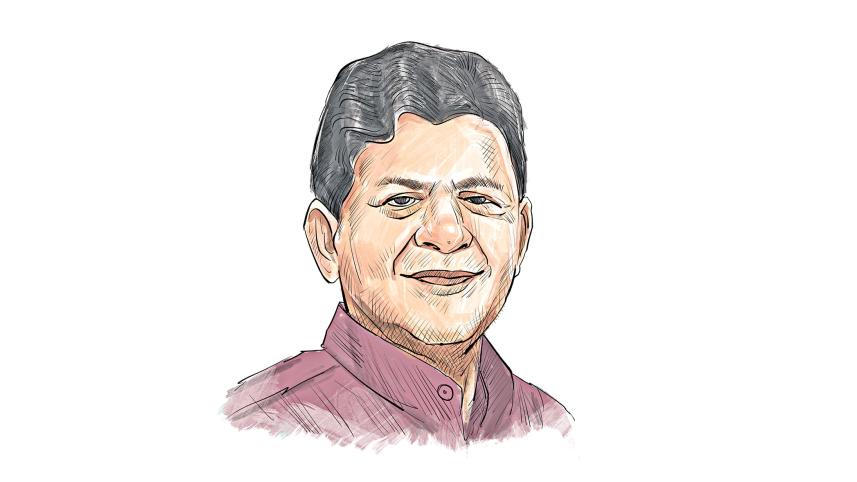Harassment, corruption two ‘national diseases’

Bangladesh must confront harassment as fiercely as corruption if the country is to accelerate its economic momentum, said Hossain Zillur Rahman, former adviser to the caretaker government.
He urged that both harassment and corruption be recognised as "national diseases," stating that the two problems have become entrenched in business and daily life.
He made the remarks yesterday at a seminar titled "Bangladesh's Course of Action and the Role of the Federation of Bangladesh Chambers of Commerce and Industry (FBCCI) in the Context of the Trade War," held at the InterContinental Dhaka. The event was organised by the Bangladesh Business Forum (BBF).
Rahman said, "We very easily fall into the trap of complacency. We have done so before, and even now we are becoming accustomed to it."
"In today's reality, simply saying 'Bangladesh is progressing' is not enough. The key issue is the pace of that progress. There is no room for complacency merely because we are moving forward," he added.
He emphasised that decisions on the economy must be taken with urgency, and both the economy and the national mindset must gain momentum.
Citing comparisons, he noted that in 2004 Bangladesh and Vietnam were on the same list, but today Vietnam has moved far ahead.
"Poverty in our country is moving in the wrong direction, and underemployment has reached epidemic proportions. The dropout rate at the primary level has increased," he said.
The economist noted that over the past 15 years, due to cronyism and unethical practices, the private sector has come under scrutiny. "However, it is the private sector that will drive the wheels of the economy."
"Therefore, it must be brought back into a position of trust. Special emphasis must also be placed on the small and medium enterprise sector," he added.
Rahman further said that the global economy is currently undergoing major transformations, and a new world order is in the making. "Bangladesh must engage in this process with competence. It is now time to initiate a strong national dialogue about new drivers of growth."
Kamran T Rahman, president of the Metropolitan Chamber of Commerce and Industry (MCCI), said that over the past year, the country's economy has faced several challenges. Among them, the deterioration of law and order, currency devaluation, and inflation have emerged as major issues.
Pointing out that the country has a labour force of 65 million, he said, of them, only 12 million are employed in the formal sector. "Most of the workers employed abroad are unskilled, which results in lower earnings compared to workers from India or Sri Lanka."
Also speaking at the event, Masrur Reaz, chairman of the Policy Exchange of Bangladesh, said despite the ongoing global trade war and shifting geopolitics, new opportunities are emerging for Bangladesh.
Companies from the United States, Europe, and Japan are adopting a "China Plus One" strategy, seeking to move production out of China, he noted. "They are looking for alternatives in politically neutral countries. Alongside Mexico, Vietnam, and the United Arab Emirates, Bangladesh could also become a potential destination."
Reaz further said that to seize this opportunity, focus must be placed on enhancing competitiveness, improving ports and infrastructure, reforming the regulatory framework, and developing new export sectors. In addition, the private sector must play a proactive preparatory role.
Mohammad Hatem, president of the Bangladesh Knitwear Manufacturers and Exporters Association, criticised the Federation of Bangladesh Chambers of Commerce and Industry, saying that the apex trade body failed to play an effective role as a trade organisation in addressing the problems faced by businesses.
"In order to make trade organisations more effective, they must be free from the influence of partisan politics," he said.



 For all latest news, follow The Daily Star's Google News channel.
For all latest news, follow The Daily Star's Google News channel.